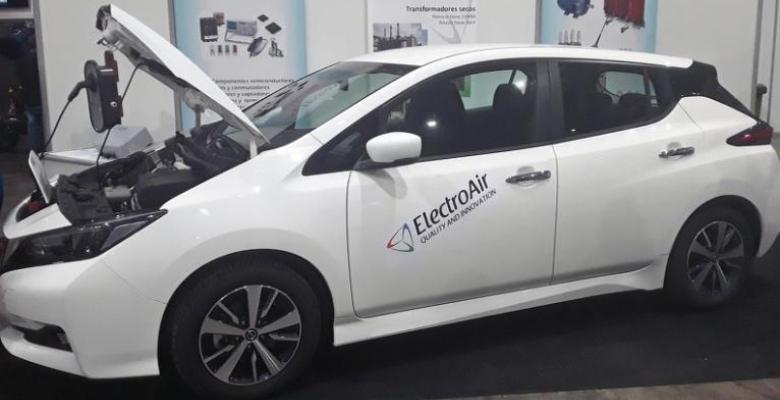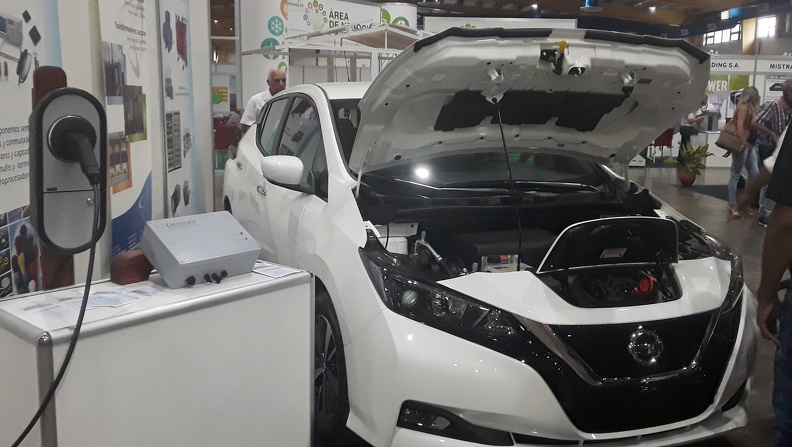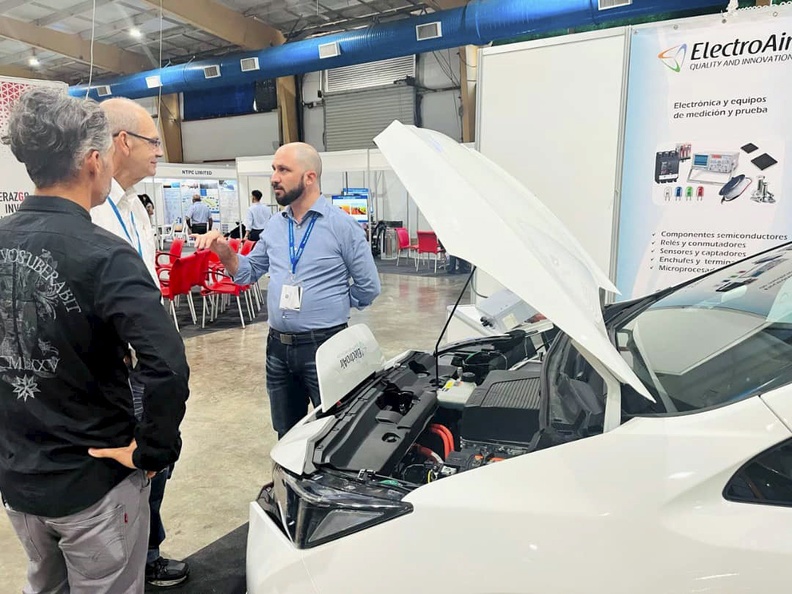ElectroAir in Cuba: Clean Energy on Wheels
especiales

Transportation in Cuba undergoes a transition towards sustainable mobility through the use of renewable energies, a process that is visible in buses and vehicles of entities, including Aguas de La Habana and Etecsa Telecommunications Company, as a result of donations and imports to the country.
Currently there are few cases of cars whose manufacturers are based in the largest of the Antilles and with accessories typical of the Cuban industry, however the European company ElectroAir has a branch in the national territory that for 10 years has sold entirely electric vehicles for its operation.
Javier Ramos González, deputy manager of that entity on the island, explained exclusively to the Cuban News Agency the characteristics of the new Nissan LEAF, which could soon roll-on Cuban streets.
The automobile, according to Ramos González, although it’s electric, fundamentally exhibits solar energy as a starting point, for which it has solar panels and inverters, the latter being the devices responsible for transforming continuous or direct energy generated by the own panels in an alternative current that can be adapted to the equipment that receives it.

He also commented that it contains three types of chargers: an emergency one, whose charge supply is slow; the intermediate, which uses alternating current; and a fast charger, which can give the car an 80 percent charge in about 30 minutes, which is similar to refuel at a gas station.
The completely new 40-kilowatt lithium batteries guarantee its durability (5-8 years) and allow it better performance in terms of charging performance, he said.
Strengthening the alliances with the Electronics Group will allow, up to a certain extent, to deploy the different charging modalities for electric cars using solar energy, he stated.

He also asserted that the Nissan LEAF, exhibited at the recently finished Second International Renewable Energy Fair, has no mechanical parts and, from an infrastructural point of view, offers great driving comfort, similar to that of a modern internal combustion vehicle.
The deputy manager of ElectroAir in Cuba explained that, although its manufacture comes from Europe, it’s known that the Japanese brand Nissan certifies the technology of the LEAF model, which is adapted to the conditions of the Caribbean nation and facilitates a better experience not only when driving, but also for its use.
He said that, in the case of these vehicles are designed to be periodically maintained for between four and five months, since this process would consist of checking from a computer any fault or breakdown that any of its elements may have in its electrical system.
However, the car has parts that require lubrication and adjustments, he said.
He asserted that this model can travel a distance of up to 300 kilometers with a single charge, although sometimes the problem of reaching places that are long distance without a charge is compulsory.
For this, Ramos González stressed, a change of mentality is required regarding what electric mobility represents, since everyone wonders how far it can go, being Cuba a narrow and large country in terms of its geographical conditions.
The idea is that the person can move in an electric car, without it using the energy of the national grid system due to the current situation that exists and that we all know, he quoted.
The country's leadership has emphasized the need to start replacing fossil fuels, and that depends largely on the use of renewable energy sources, since we cannot be a burden on the national electricity grid, he insisted.
The first thing we must solve is to create an infrastructure that allows us to have the conditions so that this car can be used extensively, always bearing in mind that although it is an expensive technology, it has positive economic and ecological implications for the future, he said.
A short-term solution proposed by Ramos González is the manufacture of solar inverters in conjunction with the national electronics industry, because many of the devices and accessories that are acquired in foreign markets must later be adapted to local conditions.
In this regard, he announced that ElectroAir includes among its plans the establishment of alliances with new economic actors to give sustainability to these devices efficiently and quickly.
We want that, at some point, the Nissan LEAF or other vehicles with similar properties reach the population, above all to save energy, minimize the use of fuel and in order to support electric mobility to reduce the effects that all these gases have on.
Translated by Amilkal Labañino / CubaSí Translation Staff













Add new comment